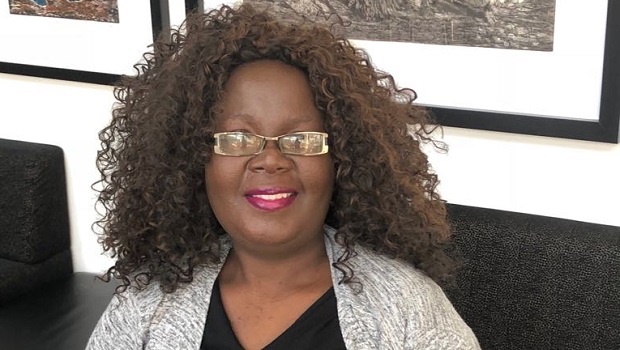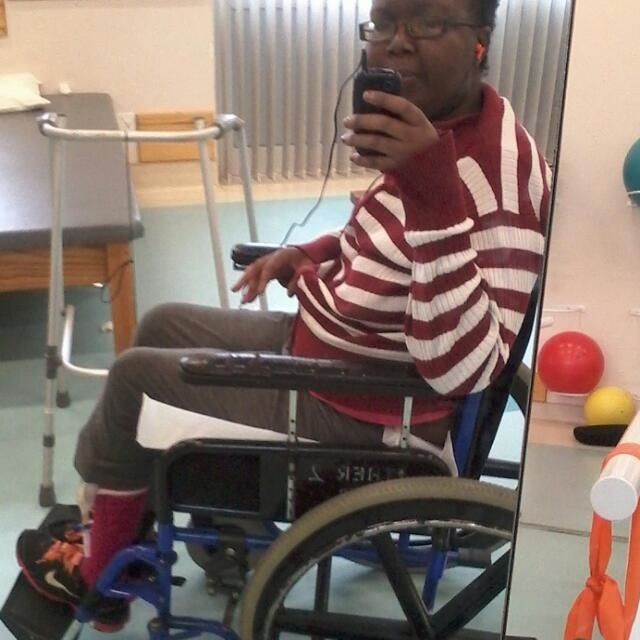
In February 2016, Makgosi Letimile, 35, fell sick. Thinking it was merely a fever, she was eventually admitted to the hospital and found out that she had TB - but not the common type. Two years later, she is in a wheelchair and she shares her journey.
"I remember waking up in the hospital on the 17th of February," she tells us, "and they told me that they were running tests. They had a suspicion of what it could be but they weren’t sure as to what was wrong. They came back with the results two days later and told me that I had TB. This TB is meningitis TB, so it’s from the brain and affected my spine."
"I had a temperature so I didn’t think it was anything out of the ordinary. I went and tried to self-medicate. At that time, I could hardly comprehend what they were telling me, and I didn’t understand how serious it was. So when they said I had TB, I thought, 'Okay, I know TB, it’s just going to take six months and then I’ll be fine.'" But Makgosi was told that the TB she had was meningitis TB and she lost the use of her legs because of it.
Two years later, she no longer has TB, but she has been left disabled.
READ MORE: "I was on a hospital bed when I finished my thesis"
After she found out about the condition, Makgosi explains that she was on treatment for 24 months and she had to "take 64 pills for 24 months – 32 in the morning, 32 in the evening". She adds that because TB always has a chance of coming back even after your finish your treatment, she goes for check-ups just to be on the safe side. "Apparently, I’m not expected to take the test but I just want to do it for my own peace of mind," she says.
Makgosi's health has improved over the period of two years since she was diagnosed. However, even with her improved health, Makgosi has had to deal with the changes and challenges that come with being in a wheelchair. Despite the discriminatory treatment that she receives from others, she has come to accept her disability and is pursuing her goals as she has before.
"The doctors told me that I’ll never walk again, but they’re not God obviously. Two years ago I couldn't stand on my own and used a walking aid. So, I think, in time, I could eventually walk again. I will be disabled still but I could make use of a walking stick or something. Even if I never walk again, I really am not bothered by that anymore. I’ve come to a place in my life where I’ve accepted being disabled," says Makgosi.
"I wasn’t aware that people with disabilities face so much discrimination, so that’s been a challenge for me. I used to be the wall flower who avoided any attention and now every time I leave the house it's all eyes on me."
One of the most challenging things about the disability, Makgosi says, is the discrimination she faces when she applies for work. "People judge me by my disability. They don’t understand that just because I’m disabled, doesn’t mean that I am completely unable to function," she explains; "my health is constantly under question whenever I apply for work."
But the negative treatment that Makgosi receives is not enough to diminish her determination to succeed.
"What keeps me motivated to apply and find work is my daughter. My Amo is in Cape Town. When I got sick, she said I must come home and heal and get back to her when I'm ready. It's been two years, so I need to get back to her as I promised I would. That is the one reason I wake up and apply for jobs everyday," she tells us.
"I remain positive because I've accepted myself. Society hates people with disabilities so much and I have to live in this body all the time. So I can't hate myself while facing the hate of the rest of the world. Self-love is a reminder that I deserve to be here too."
READ MORE:
Makgosi aspires to eventually start her own business, and to also find ways to ultimately make employment processes better for people with disabilities. In the meantime, she has taken to blogging about her experiences of being in a wheelchair. She writes to inform people who don't know, and to document her personal experiences for people who can relate. To those who relate to her, her advice is to take it one day at a time and to embody self-love, which she, herself, does as often as she can.
"I had a lot of body issues when I was able-bodied. But I've since learnt to accept and love myself because even at my worst time my body didn't quit on me. So I'm less critical of myself. This experience has definitely made me more sensitive and empathetic to others and myself."
Sign up to W24's newsletters so you don't miss out on any of our hot stories and giveaways.




 Publications
Publications
 Partners
Partners












